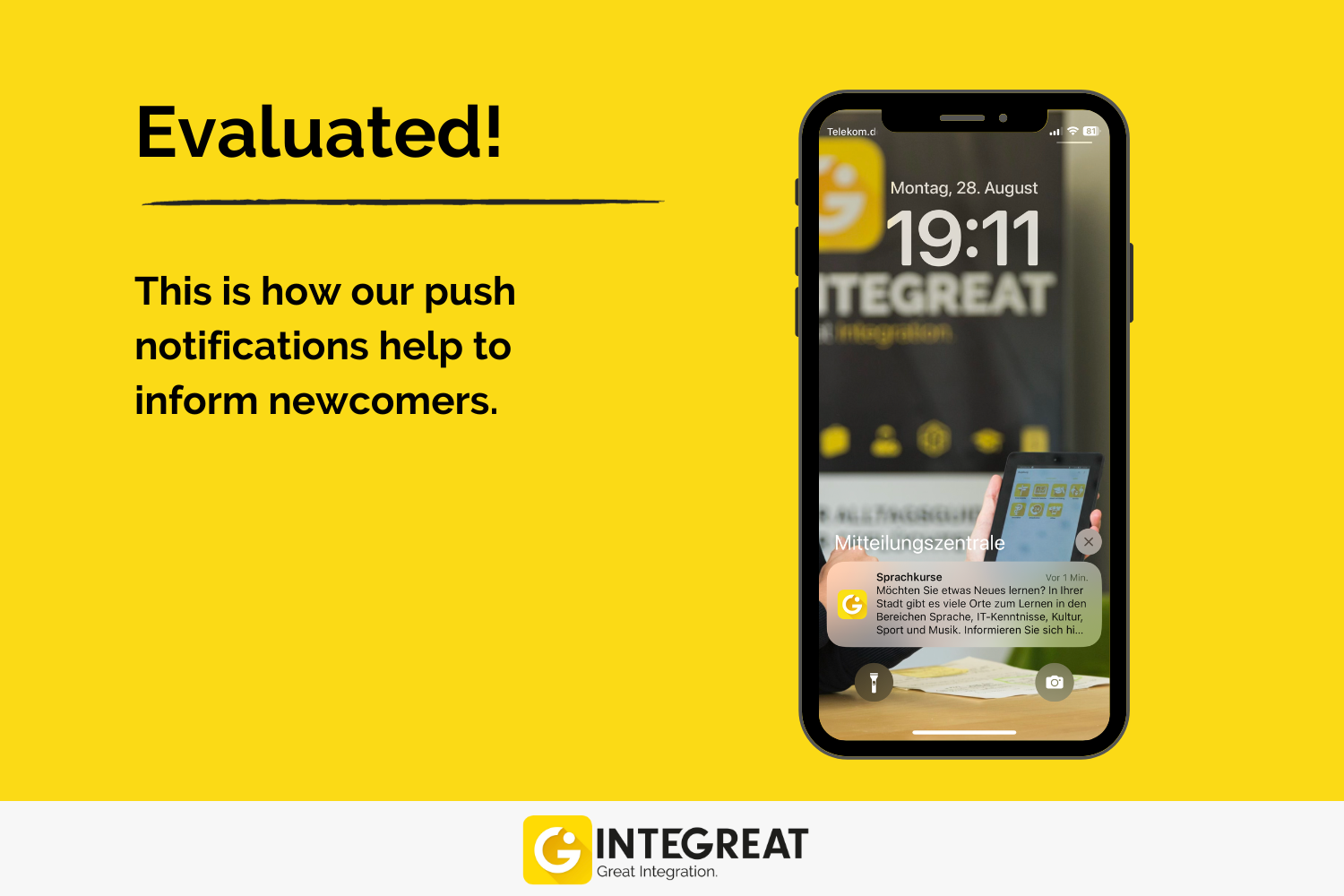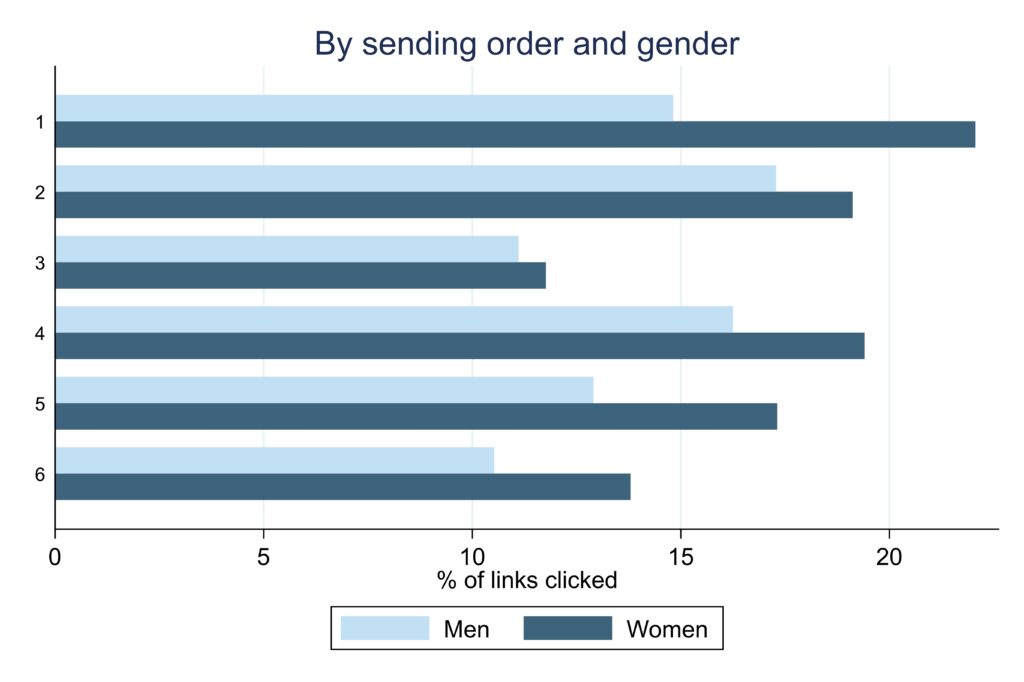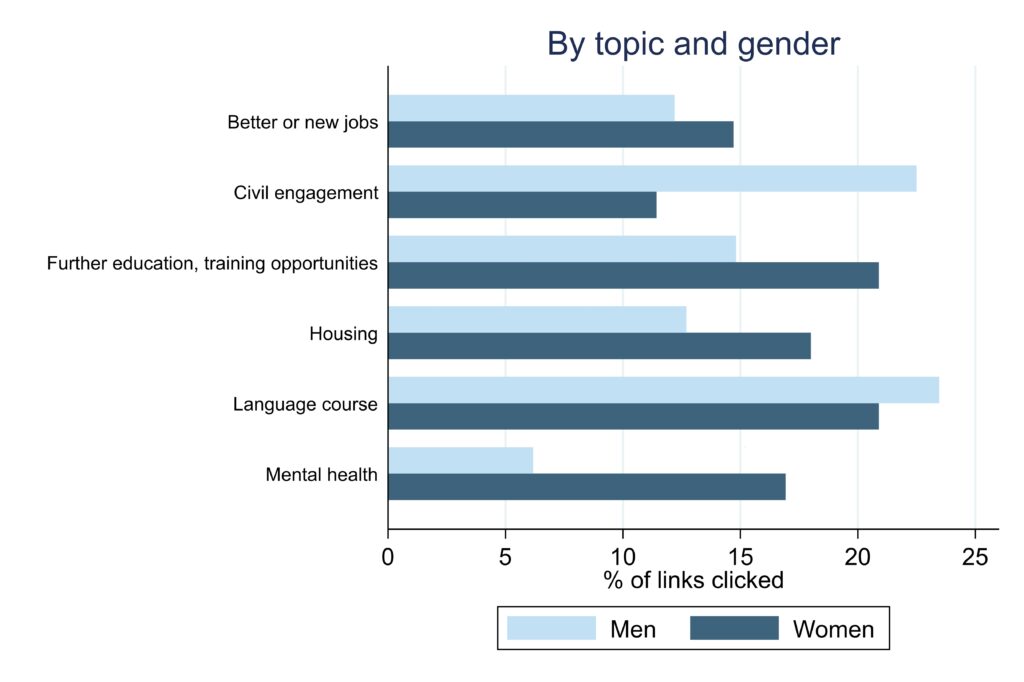Push notifications in Integreat show impact

Push notifications for Integreat play a crucial role in reaching users. An international research team from four institutes has been researching the impact of Integreat for two years. Among other things, they investigated the extent to which explicit references to content in Integreat can lead to people using Integreat more regularly. Push notifications sent to smartphone users are one example of an explicit hint.
Frequency of messages sent in the research project
The research team sent a total of six messages on various topics to the study participants in December 2022. The interval between two messages was four to five days. The order of the topics was randomised. Due to the slight decrease in clicks on the links to Integreat in the messages, we recommend using push notifications deliberately and not too frequently.

On which topics messages were sent
The researchers selected six different topics to evaluate the effectiveness of push notifications. The selection of topics was also inspired by the structure of Integreat content, which most Integreat municipalities use:
- Labour
- Language
- Education
- housing
- mental health
- civic engagement
Users most frequently opened messages about language courses, followed by finding work and civic engagement.
Who do push notifications in Integreat reach and how well?
By taking a closer look at the click behaviour of users, the research team was able to document even more exciting insights. The researchers were able to identify differences between genders, German language skills, countries of origin and other characteristics. Overall, the employment rate of the study participants is very high at 84% for male respondents and 63% for female respondents, which may have an additional influence on the click rates – especially the interest in job search content.
Who clicks on the link contained in the push notification?
- Women are 5.6% more likely to click on the link
- Messages with information on language courses had the highest click rates
- Refugees are 10% less likely to click on the link than other migrants
- Respondents from Turkey and the former USSR were less likely to click on the links than respondents from Arabic-speaking countries and African countries
How are women reached with push notifications?
- The probability of clicking on the link increases with age
- Women who have recently arrived in Germany (within the last 5 years) are 13.5% more likely to click on the link
- Women with German language skills at B2 level or higher are 13% more likely to click on the link
- Women from the former USSR are less likely to click on the link than respondents from other countries of origin
- The most popular topics among women are further education opportunities, language courses and mental health
How are men reached with push notifications?
- Men who receive the message in their native language are 9% more likely to click on the link (otherwise the message was sent in German)
- Men from Turkey and the former USSR are less likely to click on the link than respondents from other countries of origin
- The most popular topics among men are civic engagement and language courses

Dr Nadzeya Laurentsyeva from the Ludwig-Maximilians-Universität in Munich draws the following conclusion for the push notifications at Integreat: “The general level of awareness and use of Integreat increased significantly after we sent messages on specific topics (in December). It is therefore not enough to just provide general information about Integreat to achieve regular use.”
Who is behind the research into the effect of Integreat
Since 2021, we have been dedicated to the task of conducting a comprehensive and meaningful analysis of the impact of Integreat in municipal integration work. We are working together with a research team consisting of Dr Yvonne Giesing (ifo Institute for Economic Research), Dr Nadzeya Laurentsyeva (LMU Munich), Dr Clément Imbert (University of Warwick) and Prof Dr William Parienté (University of Leuven). The research project is funded by the international research centre J-PAL, whose founder Abhijit Banerjee and founder Esther Duflo were awarded the Alfred Nobel Memorial Prize in Economic Sciences in 2019.
